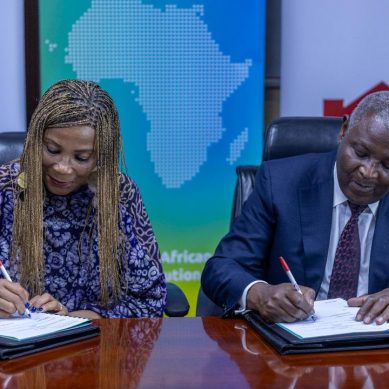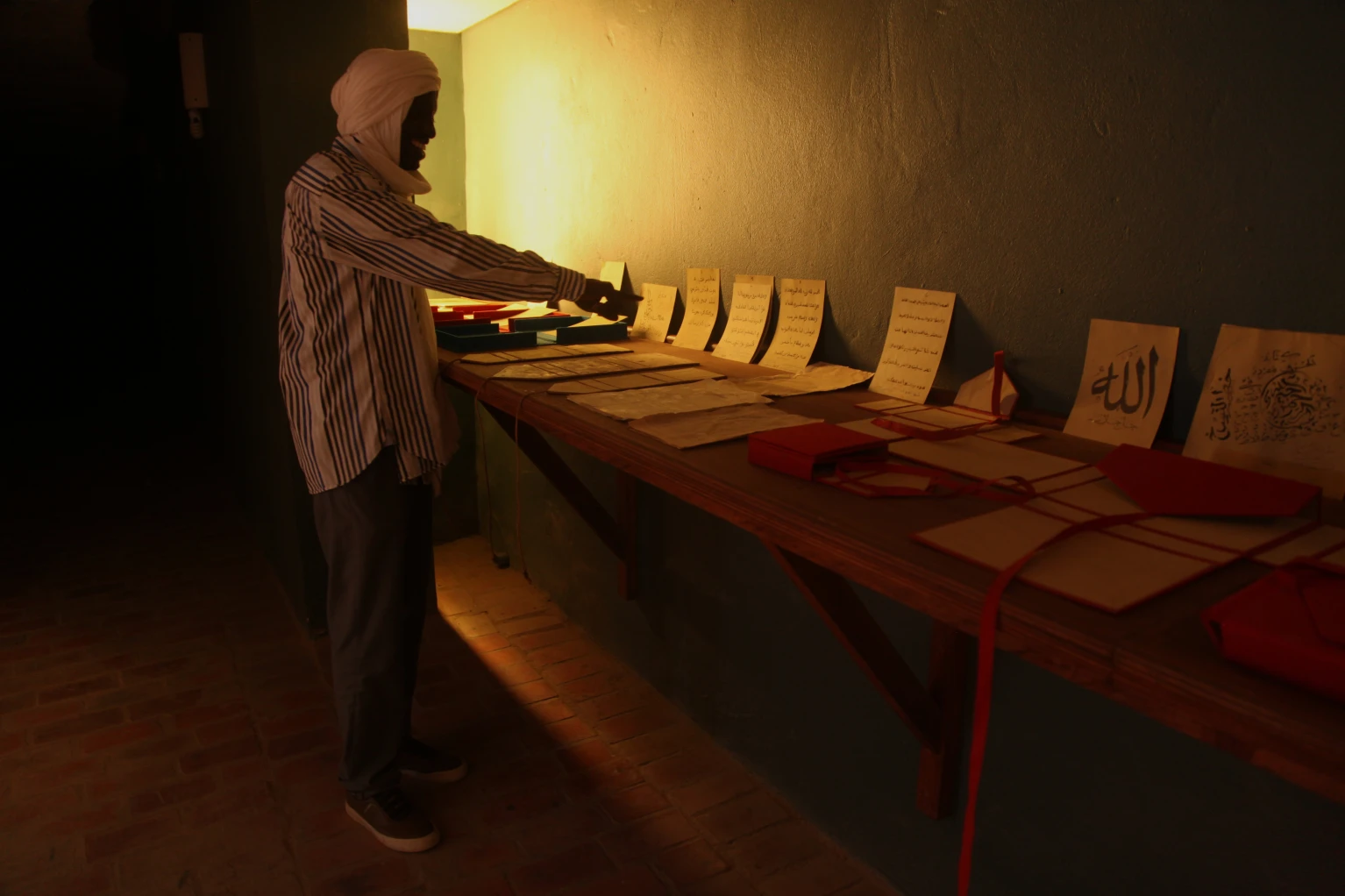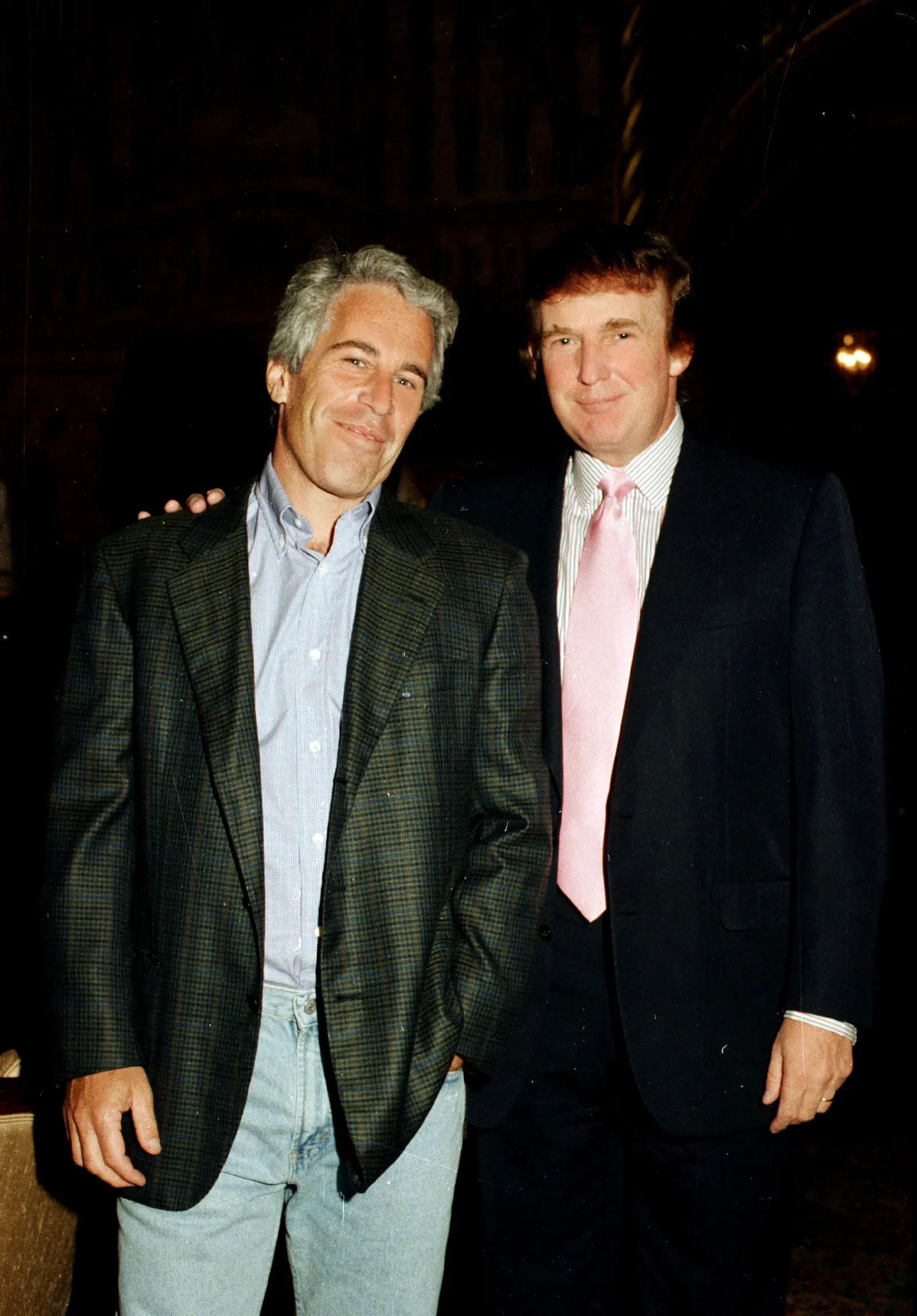
Aydin Hadid Talal thought his whole family had been killed in Islamic State’s ferocious assault on Iraq’s Yazidi religious minority a decade ago. Then last year, the 20-year-old started receiving messages from a Facebook account he didn’t recognise, asking about his missing brother, Rojin.
“Can you give me a call?” the person asked.
“No, I can’t. I don’t know you,” Aydin said.
“I’m Rojin,” came the response.
The last time Aydin had seen his younger brother was in March 2019, when they were both captives of IS in Syria. He asked to see a picture to confirm it was Rojin. It was. They then spent more than two hours on a video call. They were eager to reunite, but it wouldn’t be easy.
Rojin, who is 18, was working in Idlib, a city in northwestern Syria that is a last bastion of anti-government rebels and Islamist extremists with ties to al-Qaeda and IS. To reach his brother, Rojin would have to cross into an area controlled by the US-backed Syrian Democratic Forces, a Kurdish-led Syrian militia, then over the border to the Yazidi heartland in northern Iraq. And he had no identification and no travel documents.
Ten years after Islamic State’s brutal campaign against the Yazidis spurred the United States to send its military back to Iraq to halt its advance and try to avert a genocide, hundreds of families are still desperate to reunite with missing relatives captured and enslaved during the group’s reign.
Islamic State deemed the Yazidis’ ancient faith heretical. IS’s heavily armed fighters sought to kill or subjugate Yazidi followers after overrunning their heartland in Iraq’s northwestern district of Sinjar in 2014.
By 2019, the US-led coalition and local partners had driven IS out of territory the extremists seized in Iraq and Syria for their self-declared caliphate. But survivors and activists say it has largely been left to families and a handful of improvised rescue networks to find and bring home thousands of loved ones.
We travelled to Sinjar and across Iraq’s northern Kurdistan region, where hundreds of thousands of Yazidis sought sanctuary in 2014, to report on the search. This account is based on interviews with more than 20 people, including former captives, family members, smugglers, community leaders and government officials. They described a slow, difficult quest that often ends in heartbreak.
Iraqi officials say more than 5,000 Yazidis, most of them men and older women, were killed in the initial assault in August 2014, their bodies dumped in mass graves. Some 6,400 others, mainly women and children, were captured. Sold into domestic and sexual slavery or trained as fighters and suicide bombers, they were passed from owner to owner across the group’s “caliphate,” which at its peak spanned roughly a third of Iraq and Syria.
At least 3,584 of the captives eventually escaped or were freed, according to an office set up by Nechirvan Barzani, president of Kurdistan, to coordinate rescues. Of the nearly 2,600 still missing, most are feared dead – either killed by their captors or in battles between IS and its foes. But every few months, news of more survivors reverberates through the community, which counts around a million members, just under half of them in Iraq.
In October, US and Iraqi officials announced that a 21-year-old Yazidi woman kidnapped by IS a decade ago was evacuated from the Gaza Strip in a secret operation that involved Israel. The Hamas militant group, which ruled Gaza before it went to war with Israel last year, said the woman married a Palestinian who fought alongside Syrian opposition groups and moved to Gaza with her in-laws after he was killed. She was one of 14 former captives reunited with relatives in Iraq this year, the rescue office said.
Yazidi activists believe others are still held by IS militants and family members or have started new lives in Syria, Turkey and beyond. Estimates range from a few hundred to over 1,000.
Many were taken as young children and have little or no recollection of where they are from, rescuers and former captives said. Raised in the extreme ideology of Islamic State, some do not want to return to their community. Others fear they will be rejected or separated from the children they had with IS fighters who enslaved them.
Yazidis who convert or marry outside the faith, even under duress, were traditionally exiled. That was a product, in part, of centuries of persecution that elders say has made the community fearful for its survival. Rape can also be viewed as a stain on a family’s honour.
After the IS assault, religious leaders issued new edicts allowing women and girls who had been forced into sexual slavery to be baptized back into the faith at the Lalish temple complex in northwestern Iraq, the holiest site for Yazidis. But children fathered by the militants are not welcome.
“Their blood is Daesh blood,” said Luqman Sleiman, a Lalish spokesperson, using the Arabic acronym for Islamic State. “When they grow up, they will kill.”
Iraqi law presents another hurdle, Sleiman said. It states that children inherit the religion of their fathers, and Yazidis do not accept converts.
Yazidis practice a monotheistic religion that has elements in common with many Middle Eastern faiths, including Islam, Christianity and Zoroastrianism. A central figure is Melek Taus, a peacock angel that IS and other detractors have likened incorrectly to Satan, contributing to accusations that they worship the devil. Yazidis say the angel is a benevolent figure entrusted by God to care for the world.
Some community activists say finding abducted Yazidis has not been a priority for Iraq’s government and its allies.
“There is no systematic effort from Iraq or the international community to rescue captives,” said Murad Ismael, a co-founder and former executive director of the US-based advocacy group Yazda who now runs an education initiative in Sinjar.
Ismael said rivalries between different governing bodies, including the Iraqi federal government, Kurdish regional authorities in northern Iraq and their Kurdish counterparts in Syria, mean there is little cooperation among them.
He also accused the US-led coalition of doing too little to free Yazidis. The coalition is now expected to wrap up operations in Iraq by September 2025, though the mission will continue in Syria.
The US State Department said in a statement that Washington has worked for years to free kidnapped Yazidis and facilitate their return to safety.
“We are determined to find them, to learn their fates, and to rescue those who remain alive,” US Secretary of State Antony Blinken said in July, adding that Washington has invested some $500 million in supporting the recovery of communities most affected by IS.
The coalition did not respond to questions for this article.
Khalaf Sinjari, who advises Iraq’s prime minister on Yazidi affairs, agreed that not enough had been done by previous governments, saying resources were stretched, and the priority was defeating IS. But he said the government has now formed a committee to work on the cases of missing Yazidis and is coordinating with partners.
Dindar Zebari, who coordinates international advocacy for the Kurdistan regional government, said it remained dedicated to locating and returning Yazidis and was “working closely with international agencies to address these complex cases”.
He acknowledged that Baghdad has taken steps to support Yazidis but said improved cooperation with Kurdistan could help expedite rescues. There was no coordination between his government and Kurdish counterparts in Syria, he added.
Khairi Bozani, who heads the Kurdistan leader’s rescue office, said his team has urged Kurdish authorities in Syria to set aside political differences that have hampered rescue efforts, but there was little communication with them.
The Kurdish-led autonomous administration in northern Syria and its military wing, the Syrian Democratic Forces (SDF), did not comment.
Aydin and Rojin were captured with their parents and two younger siblings on the first day of the militants’ assault on Sinjar on August 3, 2014. Fighters intercepted their car as they tried to flee Hardan village, they said.
Their father agreed to convert to Islam at gunpoint, but the decision did not win the family much reprieve, they said. For months, they were moved from one makeshift detention facility to the next. One day in the nearby city of Tal Afar, their father was summoned with other Yazidi men to a mosque, the brothers said. They never returned.
Soon after, Aydin was sent to a religious institute, then an IS military academy. Rojin was sold into domestic slavery with their mother and siblings but said a Saudi fighter later took him from her to raise as his own.
As IS began losing territory, the brothers were moved back and forth between Iraq and Syria, ending up in the Syrian village of Baghouz. When the militants made a last stand there in March 2019, Aydin, just 15 then, tried to convince his 13-year-old brother to flee to the SDF forces closing in on them.
“It was literally hell. You could get hit at any moment,” Aydin recalled.
But his brother, schooled in IS’s apocalyptic beliefs, said he was ready to die.
“His head was like stone. In one ear and out the other,” Aydin said.
The Saudi fighter later fled, leaving Rojin behind. Alone and afraid, Rojin said he persuaded an IS family to take him in, posing as their son when they surrendered to Kurdish forces.
They were sent with thousands of other IS family members to a detention camp called al-Hol, he said. But after a couple months, the Saudi fighter arranged for Rojin to be smuggled to the nearby city of Hasakah on the back of a motorbike, then on to a contact in Idlib.
Camp authorities declined to answer questions about individual cases.
Rojin said he welcomed the chance to escape the bleak desert camp, but when the contact left Idlib, he was on his own again. He found a place to stay in a house with other displaced young people. They were kind to him, he said, and helped him find work as a security guard at a local café.
For four years, he lived hand to mouth, working long hours for little pay. He never forgot his family, though. When he had saved enough money, he bought a smartphone, which he used to search for them online.
That’s how he found Aydin, who was living with an uncle in Khanke, a town in the semi-autonomous Kurdish zone of northern Iraq. The uncle, Saeed Talal, contacted the Kurdish rescue office. Talal said the office introduced the family to a local smuggler and agreed to cover the $3,000 fee to transport Rojin in a delivery truck to Kurdish territory.
- A Reuters report







